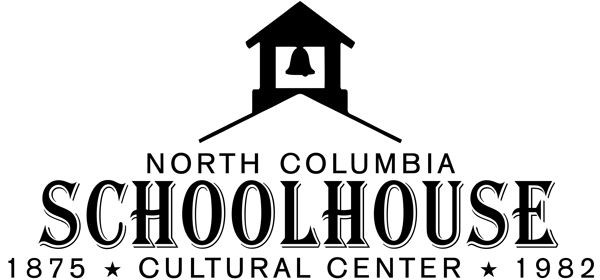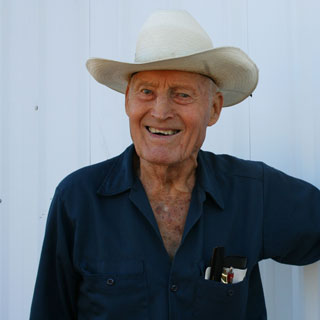“Like I say, things have changed. These young people, I can see their mistakes on how they make money and everything because I’ve been there and seen it but nobody listens to nobody. They do their own thing. But actually the old people have good advice for them if they listen. They have some good advice for them, because you already see your mistakes yourself, see? But the trouble is a lot of it’s gone that can’t be gotten no more.”
–Howard Miser
An Excerpt from the Interview
NCSCC: Did your mother talk about what it was like before there was Highway 49?
Howard Miser: I really don’t remember talking too much about before, but I think it was pretty hard times for everybody back at one time. And my grandfather, he used to run a freight wagon and a wheel broke when he was on the lower side of the freight wagon driving the horses. A wheel broke and the wagon tipped over on him and killed him. So they did have accidents in those days too.
NCSCC: You know, I had a question about this place up on the corner of Tyler Foot Road and Purdon Crossing or Purdon Road, it used to be called Al’s Corners. You see some old fruit trees still around there. I’m wondering what you remember about that spot.
Howard Miser: Well that Al’s Corners, that was started by one of my brother-in-laws, Al James in Camptonville. He started that and he used to sell beer and wine and sandwiches and stuff there and he done real good there. And then why they changed it to Mother Truckers I don’t know, but he got old. He died, he had a heart attack and died. Yeah.
NCSCC: Do you remember any old orchards around there?
Howard Miser: Not really. Well, there was some stuff around, but I didn’t pay much attention to it. There’s another ranch up there right across from Al’s Corners, Peterson’s. A lady by the name of Sally, I forget her last name, she had that. She run a few cows in there and stuff. In fact I bought one from her when I was buying cattle.
NCSCC: Another place I want to ask about is the old Murphy Ranch off of Purdon Road. Do you remember anything about that place?
Howard Miser: Murphy Ranch, yeah. I’ve only been to the Murphy Ranch maybe once or twice but I was pretty young, too young to tell you. They did have a mine there and they used to work in that mine, make a few bucks out of that mine. Then a lot of those guys used to walk from over here on the Ridge clear over to those mines in Grass Valley. There was trails in those days. They’d walk over there and work all day and walk back, back in those days. Get up early in the morning and come home, work in the mine all day.
NCSCC: Did you know some of those people who were doing that walk?
Howard Miser: Well, the Murphys did some of that. I don’t know who all… I was pretty young in those days to know. But all these ranches supported families, all of them in those days.
NCSCC: And then what happened? What happened to all these ranches? It’s only one now really – you see the Readers still have some cattle and most of these other ones seem like they went away.
Howard Miser: Well, it’s just the change in things. See, we don’t have the freedom we had back then. We could just turn cattle loose and farming and anything you wanted to do, you could almost do it and nobody bothers you. And everybody helped each other for free. If you needed help, I’d come work two or three days for you and if I needed help, you’d come work two or three days for me. We all worked together in those days and all friends and the young and the old would all go to the dances together and everything. Old buzzards like me, they’d go to the dances with the kids and we’d talk to them, we’d listen, us old guys, see? Listen to their stories and we were all more or less family. Today, kids don’t want old guys with them like we did then, see. They don’t want it. Everything has changed drastically, just changed.
Used to have big dances up in San Juan and big cherry carnivals and had cherry trees up there. They’d have big boxes of cherries sitting right along side of the street there. Anybody could eat all they wanted out of those boxes, no money involved. All they was interested in was the bars making money and the stores making money and that was it, and the dance hall making money. The rest of it they didn’t care, it was all free. Of course they’d charge you for going to the dance and charge you for lunch at the dance and stuff like that.
NCSCC: How much was it to get to the dance?
Howard Miser: You didn’t have to pay it all if you didn’t dance, you could go in. But if you went in, I don’t know, it was a quarter or 15 cents or something. I forget exactly, but it wasn’t much money. Not in those days. Same with – we’d take our girls to the show and stuff in Grass Valley, they had a place there. What was the name of that… The Brownie. It was an ice cream place and they made milkshakes and everything. And we’d drive up in our car and stop, maybe a couple of couples, see? Pretty girls working at the ice cream joint. They’d come out and get your order and bring it out, hook it on your car and you’d pay her, tip her a dime in those days, which was big money.
That’s the way it was. Just everything was free and easygoing and there was no working on Sunday, no stores open, nothing. Grass Valley was shutdown tighter than a drought on Sunday. Everybody – a lot of people went to church. There was a theatre there, and that would be open in the afternoon and that was the only thing that would be open in Grass Valley back in those mining days. It was all church-oriented country back then.

